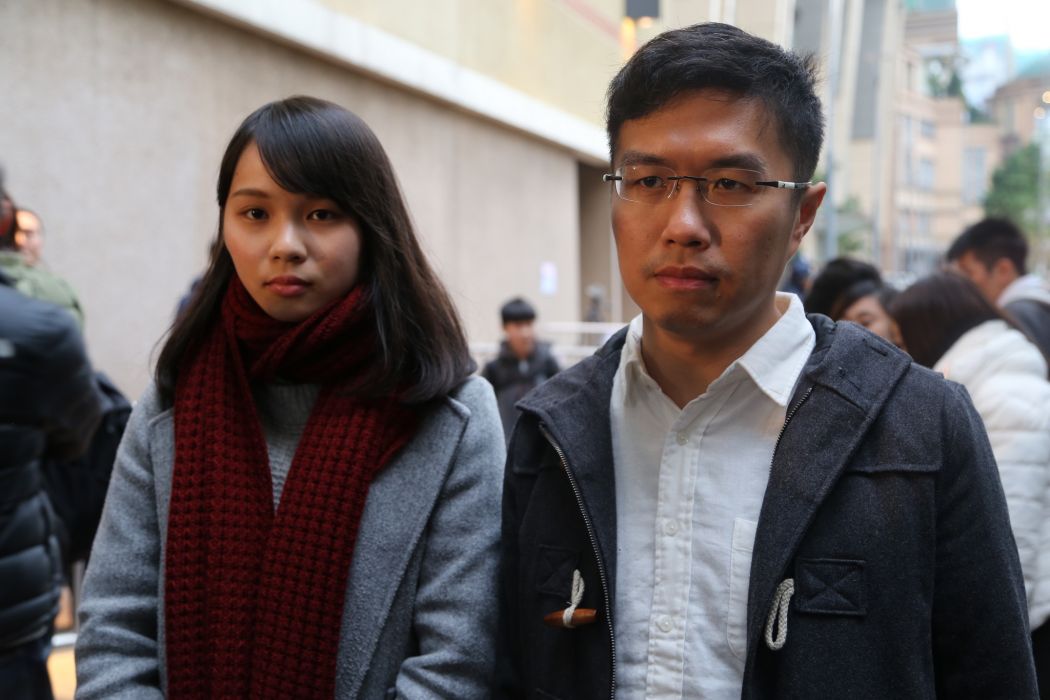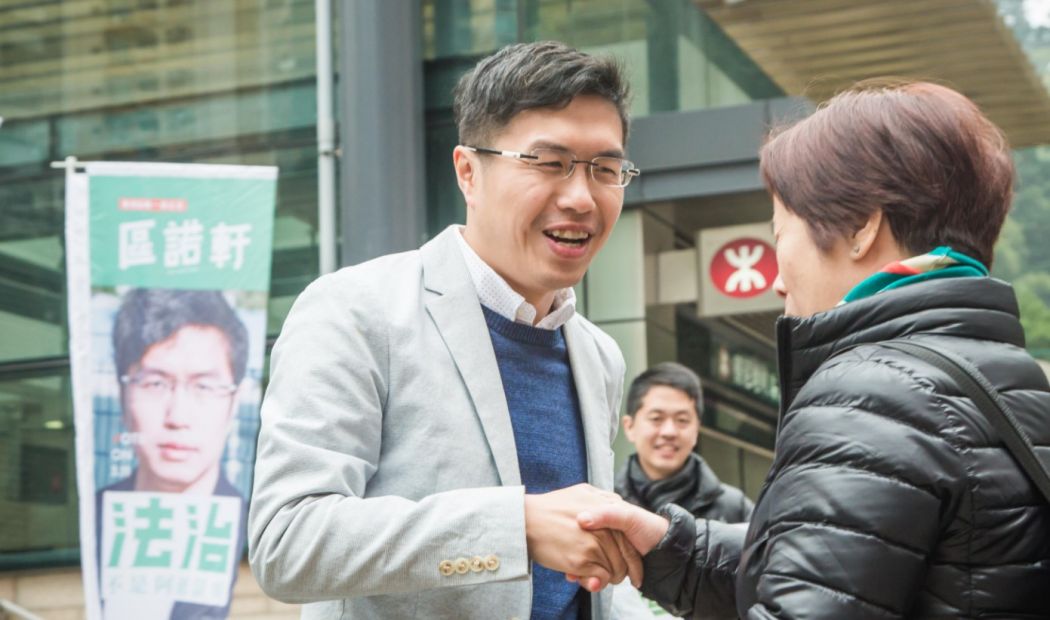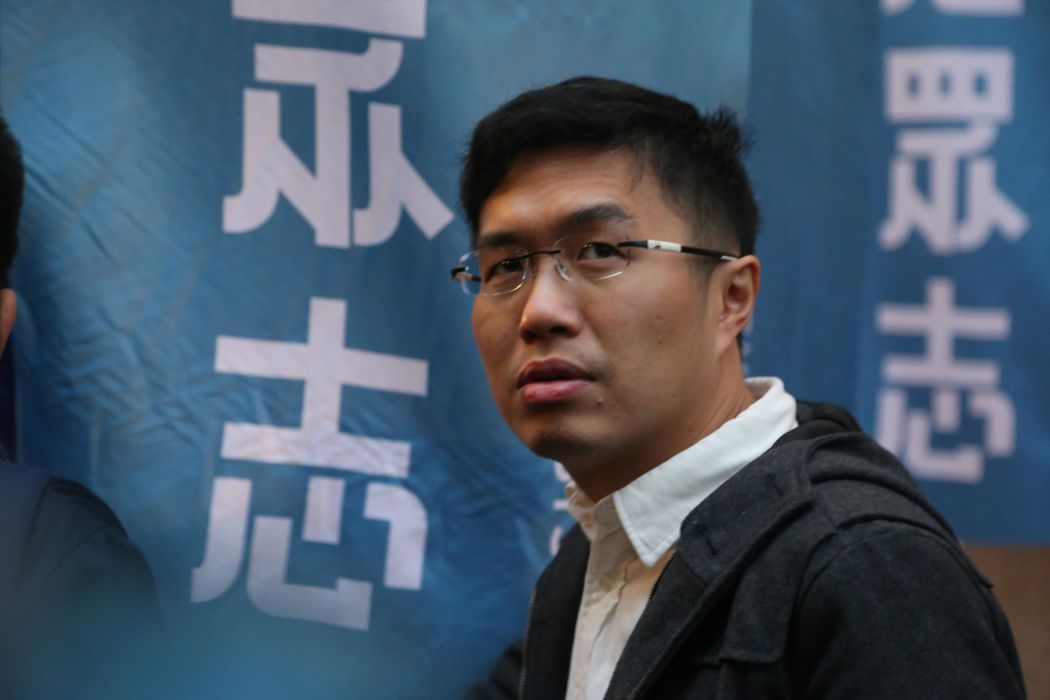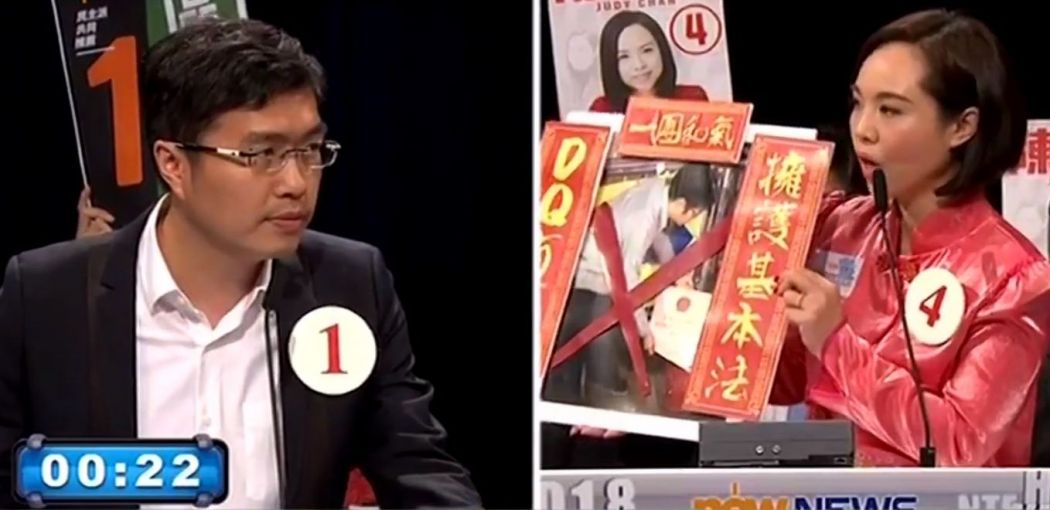Five weeks ago, I sat down with Demosistio’s Agnes Chow at a Causeway Bay cafe to talk about her bid to fill the seat vacated by disqualified lawmaker Nathan Law. Shortly thereafter, Chow herself was barred from running on the grounds that her political party had advocated “self-determination”, a stance that election officials deemed tantamount to pro-independence and therefore non-compliant with nomination requirements.

Chow’s disqualification has prompted Au Nok-hin, a Southern District Councillor and former Democratic Party member, to throw his name into the hat for the vacant Hong Kong Island seat. Nicknamed “agnès b” for running as Chow’s Plan B, Au has been pulling out all the stops to make up for lost time. But even with the full backing of the pan-democratic camp, the late starter must quickly close the gap in both name recognition and campaign funding.
It was déjà vu all over again when I met Au at the same coffee shop in Causeway Bay to discuss his campaign and political aspirations. He had just finished shooting a YouTube video in his Ap Lei Chau district council office and was getting ready for a late night campaign stop outside SOGO department store. The diminutive 30-year-old was all smiles and no nonsense—a budding politician who seemed eager to impress and poised to take his career to the next level.
Jason Y. Ng: With just a week to go before Election Day, how are you feeling?
Au Nok-hin: I’m feeling alright under the circumstances. Agnes’ disqualification has left me with barely a month and a half to run a campaign. I’m seriously behind, and there are many issues, such as the city’s rule of law, that matter to me a great deal but I simply don’t have the time to get into. Banning Agnes is in essence the government’s way of giving the pro-Beijing candidates an unfair advantage. I’d even call it election fraud.
But it is what it is. Thankfully, the reception so far has been very positive. People come up to me on the streets to offer their support. Even long-lost friends and old classmates I haven’t seen in years suddenly show up to shake my hand and take pictures with me. Little things like that give me motivation.

JN: Au Nok -hin isn’t exactly a household name. Give me your 30-second elevator pitch.
ANH: Okay, let’s see. I joined the Democratic Party in 2009 and have been a Southern District Councillor in Lei Tung for more than six years. I’m a visiting lecturer at Chinese University and City University teaching politics and political campaigning. From 2016 to 2017, I was convener for the Civil Human Rights Front [organisers of the annual July 1st pro-democracy rally]. In 2016, I ran in the Wholesale and Retail functional constituency against the pro-Beijing incumbent. All that has prepared me for my current bid for LegCo.
JN: Why should voters vote for you? What platform are you running on?
ANH: My platform is threefold. First, I want to make sure our educational resources are allocated properly. I’m talking about more than putting a social worker in every school. While that’s important, we desperately need to revamp the way teachers are hired and compensated. For starters, we need more permanent staff and fewer contract hires.
Then there is the property market and building management. For instance, there’s a large number of old residential buildings in Hong Kong in need of renovation. Renovation costs can easily run up to tens of millions per project. The lack of transparency and oversight in the bidding process for lucrative renovation contracts has allowed bid-rigging to fester and become a massive problem. We need new laws and regulations to put an end to collusion between unscrupulous management committees and contractors.

Finally, I want to focus on the economy, from reining in the powerful Link REIT to creating a more business-friendly environment for small-and-medium enterprises. Also, the Hong Kong Stock Exchange will soon introduce dual-class shares to compete with foreign exchanges and we need to make sure that minority shareholders are adequately protected. One way to do that is to permit class action lawsuits in Hong Kong.
Perhaps more importantly, I want voters to look at this by-election ballot as a protest vote. The injustice done to Nathan Law and Agnes Chow is brazen and we can’t take it lying down. An attack on one is an attack on all: if the government can strip Demosisto of its political rights today, what is there to stop them from coming after you and me tomorrow?
JN: Self-determination is simultaneously a cornerstone and a stumbling block for Demosisto—it is one of their founding principles and also the reason for Agnes’ election ban. You are her replacement and your campaign is run by many of her staff. What is your stance on self-determination?
ANH: I believe Hongkongers should be able to make decisions about their own city and the way it is governed within the confines of the Basic Law and the “one country, two systems” framework.
That might sound very similar to Demosisto’s self-determination but there are differences. For instance, Demosisto supports an unilateral referendum in 2047 to determine Hong Kong’s sovereignty but I don’t. I believe for a referendum to be recognised by the Chinese government, it has to be bilateral and comply with the Basic Law.

JN: What is your stance on independence?
ANH: I don’t believe independence is feasible. That said, Hong Kong is free city and the right to discuss these issues should not be suppressed. More critically, those in power need to recognise that the pro-independence movement is a product of social and political injustices—it’s the symptom rather than the cause.
JN: There was an episode during the February 21 televised debate when your opponent Judy Chan held up a picture of a man burning the Basic Law in public. You denied it was you at first and later recanted. Since then, the pro-Beijing press has pounced on you and attacked your integrity. Do you want to set the record straight?
ANH: The truth is, I’m a career protester and I’ve burned a lot of things in the past: pictures of unpopular government officials, Link REIT documents, the 8/31 statement [Beijing’s 2014 announcement on electoral reform] – you name it. The picture in question was me burning Annex III of the Basic Law in protest of the 8/31 framework. But I admit it: I was caught off-guard when Judy confronted me with it during a live debate and I pushed back out of instinct. It was an error on my part and I own up to it.

Nevertheless, what Judy did was part of a larger trend. The pro-Beijing camp has been going around accusing the opposition of being “anti-Basic Law” and labelling them a “secessionist”, all to lay the groundwork for future disqualifications as they have done to Nathan and the other democratically elected lawmakers. Frankly, I find this sort of Cultural Revolution-style attacks frightening.
JN: Tell me something about yourself that you haven’t talked about in previous interviews.
ANH: That’s a good question and I’ll need a minute or two to have a think…
To be honest, even though I had been tapped to stand in for Agnes right from the start, my entering the race has still caught me by surprise. You can say I’m an accidental candidate.
Suddenly, I have to put everything on hold, such as my plan to pursue a master’s degree in economics. I also need to juggle my classes and my campaign—I still teach part-time and I don’t want to leave my students high and dry while I’m running around all day. My wife is worried about the stress of running for office but she has been very supportive. We both consider this my duty.
As we walked out of Starbucks onto the crowded streets of Causeway Bay, Au said he was grateful that many pro-democracy heavyweights like Anson Chan and Martin Lee had agreed to turn up at that night’s event and future campaign stops. It would not only give him some much-needed publicity, but also boost voter turnout. He said he felt confident about his chances of winning, but only if people were willing to go out and vote on March 11th. More than anything else, he considered a low turnout his biggest enemy.
Not-for-profit, run by journalists and completely independent – thank you for reading Hong Kong Free Press. Contribute to our critical month-long HK$1m Funding Drive, help safeguard our independence and secure our operations for another year. Read how carefully we spend every cent in our Annual/Transparency Report.

[give_form id=”150839″ show_goal=”true”]
